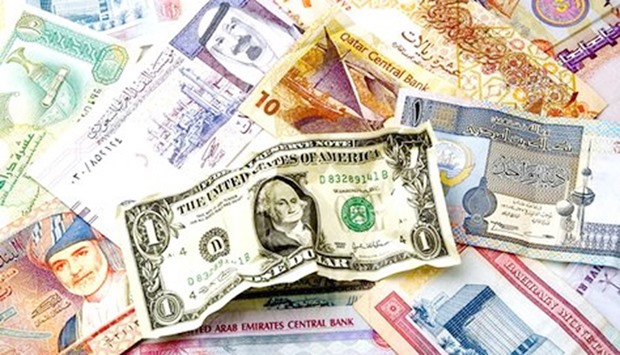"We expect (Gulf Cooperation Council) GCC countries to maintain the exchange rate peg over the medium term, mainly because we assess GCC states as having sufficient funds available to defend their currencies," the ratings agency said.
Five of the GCC states -- Bahrain, Oman, Qatar, Saudi Arabia and United Arab Emirates -- peg their currencies to the greenback while Kuwait links its dinar to a basket of currencies.
Due to the sharp drop in oil prices, most GCC states have posted a budget deficit and resorted to their fiscal reserves to finance the shortfall.
Speculation has increased recently about GCC states ending the dollar peg in favour of a flexible exchange rate regime because of the divergence between slowing GCC economies and the US economy.
Last month, most GCC states raised their interest rates to follow similar measures by the US Federal Reserve.
"At a time of already significant change and regional geopolitical instability, politically conservative regimes such as the GCC are unlikely to decide to increase uncertainty about their economic stability by amending this fundamental macroeconomic policy," S&P said.
The inflationary and social repercussions of a lower exchange rate are likely to outweigh the benefit to the fiscal budget, the agency said.
Saudi Arabia last week said its currency was stable despite volatility in the futures market and that it would maintain the peg to the dollar.
"In our view, the GCC pegs are to a large degree consistent with the reliance of their economies, to varying degrees, on US dollar-based oil revenues," S&P said.

